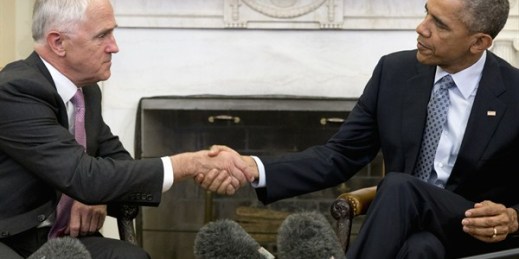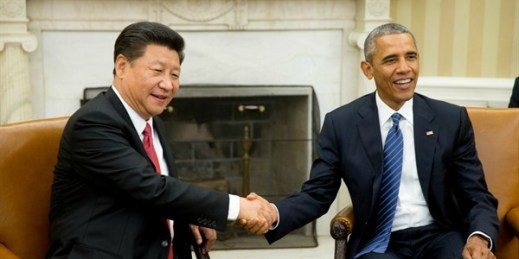
Australian Prime Minister Malcolm Turnbull made his first visit to Washington as prime minister this week, where he met with President Barack Obama and gave a national security speech at the Center for Strategic and International Studies (CSIS). In his speech at CSIS, Turnbull discussed the Syrian civil war and expressed confidence in the fight against the self-proclaimed Islamic State, which he referred to as ISIL. The coalition against the Islamic State “will win,” he said, “by targeting ISIL militarily, using local ground forces supported by coalition air power, weapons and training; curbing ISIL finances; stopping foreign fighter flows; and […]

